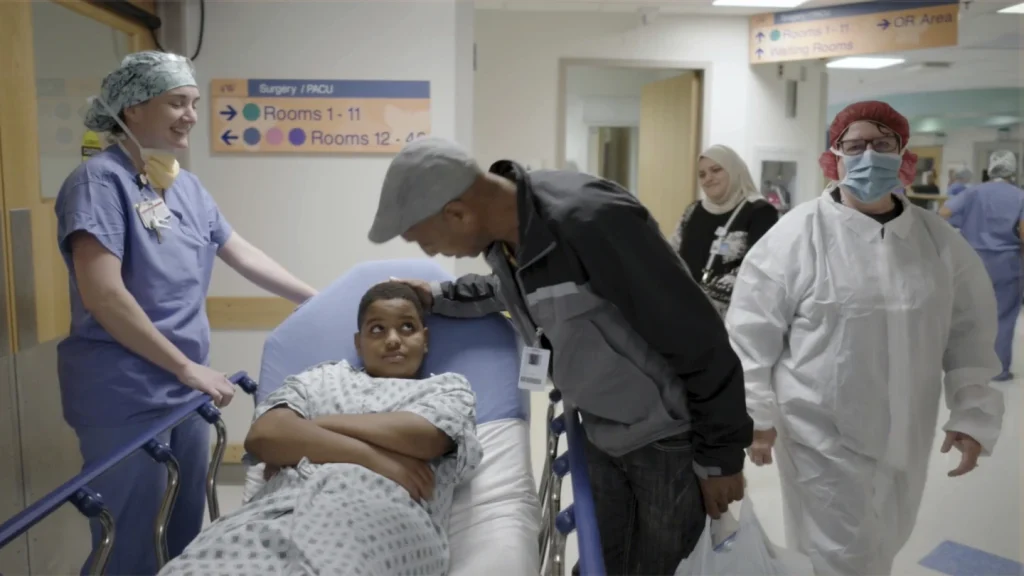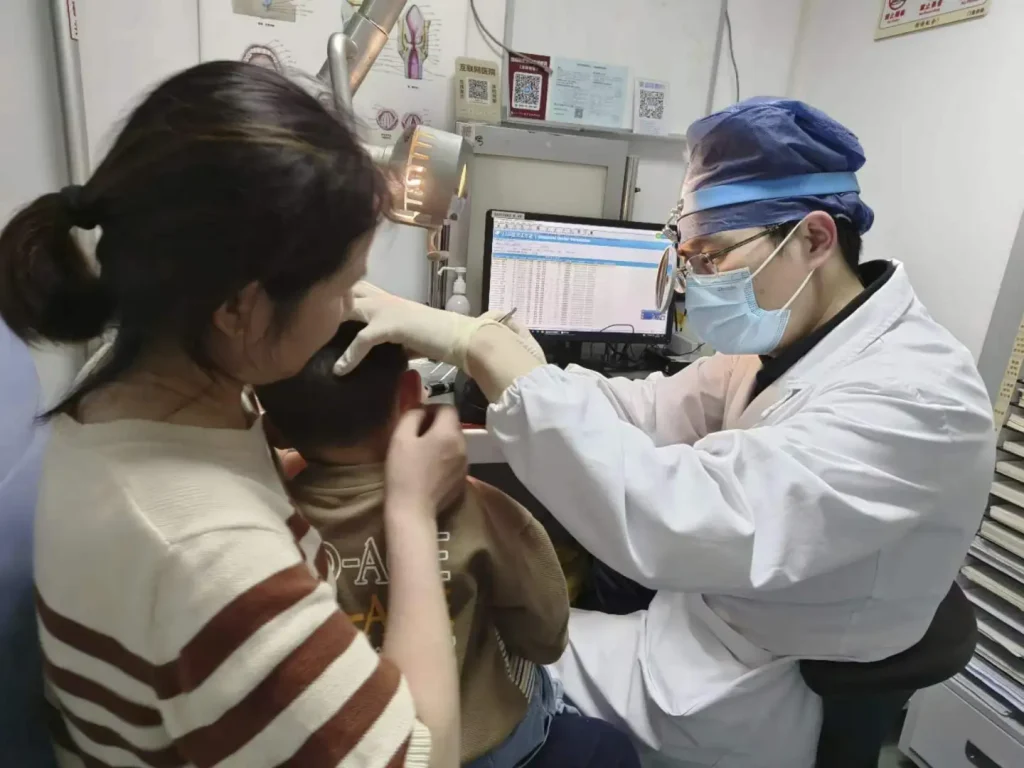The advent of gene therapy has yielded remarkable results in the realm of treating inherited deafness, offering hope and potential solutions for children affected by this condition.
A recent small-scale study, published on Wednesday, has documented a substantial restoration of hearing in five out of six children who underwent treatment in China.
This encouraging development was further underscored by the Children’s Hospital of Philadelphia’s announcement of similar improvements in an 11-year-old boy who received treatment there.
Moreover, earlier this month, Chinese researchers published a study showcasing comparable outcomes in two other children.
While the experimental therapies presently target a specific rare condition, the implications are far-reaching, as scientists posit that analogous treatments could potentially benefit a larger cohort of children grappling with various forms of deafness stemming from genetic factors.
Notably, the global prevalence of childhood deafness or hearing loss stands at a staggering 34 million, with genes being implicated in up to 60% of cases.
As such, hereditary deafness has emerged as the latest target for gene therapy interventions, which have already garnered approval for addressing conditions such as sickle cell disease and severe hemophilia.
This pioneering work in gene therapy holds promise for transforming the landscape of pediatric healthcare, offering a ray of hope to countless families grappling with the challenges of hereditary deafness.
The recent breakthrough in the treatment of hearing loss marks a significant milestone in the medical field. Zheng-Yi Chen, a senior author of the study published in the esteemed journal Lancet, expressed profound optimism regarding the results.
The team meticulously documented the progress of patients through compelling videos, showcasing heartwarming moments of children responding to sound after undergoing the innovative therapy.
The subjects, all afflicted with a genetic condition responsible for a notable percentage of inherited deafness, received a one-time therapy designed to rectify the underlying genetic mutation.
This pioneering approach involved the delivery of a functional gene copy directly to the inner ear during a surgical procedure.
Notably, the study, which involved six children, was conducted at Fudan University in Shanghai, under the co-leadership of Dr. Yilai Shu.

The collaboration between Dr. Chen’s lab and Dr. Shu’s team, along with the support of Chinese science organizations and Shanghai Refreshgene Therapeutics, underscores the global effort and investment in advancing medical research and treatment modalities.
This groundbreaking achievement offers hope for individuals grappling with inherited deafness and heralds a new era in the management of hearing impairments.
Over a span of approximately six months, researchers diligently observed a group of children, noting remarkable outcomes in their hearing abilities following innovative treatments.
While the reason behind the treatment’s lack of efficacy in one child remains elusive, the positive impact on the remaining five participants has been nothing short of extraordinary.
Previously afflicted with complete deafness, these children now possess the ability to engage in regular conversations and communicate with others. Dr. Chen, estimating their current auditory capacity to be within the range of 60% to 70% of normal, highlighted the absence of significant adverse effects resulting from the therapy.
Encouragingly, similar promising results have emerged from other ongoing research endeavors. Regeneron Pharmaceuticals in New York disclosed preliminary findings in October, showcasing notable improvements in a child under 2 years old following gene therapy.
Likewise, a study sponsored by a subsidiary of Eli Lilly, conducted at a Philadelphia hospital, reported the case of Aissam Dam from Spain, who experienced hearing sounds for the first time subsequent to treatment.
Although the sounds remain somewhat muffled, akin to wearing foam earplugs, Dr. John Germiller, leading the research in Philadelphia, emphasized the dramatic transformation in Dam’s auditory capabilities, from complete and profound deafness to a level of mild to moderate hearing loss, marking a substantial milestone.
Dr. Lawrence Lustig from Columbia University, who is actively involved in the Regeneron trial, underscored the remarkable nature of even a moderate recovery in hearing for these children.
Nevertheless, lingering questions persist regarding the durability of the therapies and the potential for continued improvement in the children’s hearing abilities.
These developments mark a significant stride in the realm of auditory treatment, kindling hope for those affected by hearing impairment while also prompting further inquiry into the long-term efficacy of these groundbreaking interventions.
Gene therapy for deafness has sparked ethical concerns among some individuals. Teresa Blankmeyer Burke, a philosophy professor and bioethicist at Gallaudet University, emphasized the lack of consensus regarding the necessity of gene therapy targeting deafness.
She highlighted the fact that deafness does not result in severe or life-threatening conditions, unlike diseases such as sickle cell disease.

Burke stressed the importance of involving the deaf community in discussions about the prioritization of gene therapy, as many perceive it as a potential threat to the flourishing of signing Deaf communities.
On the other hand, researchers are pushing forward with their work, citing it as concrete evidence that gene therapy is indeed effective and has the potential to revolutionize the field.
This ongoing debate raises important questions about the ethical implications of gene therapy for deafness and the need for careful consideration and engagement with affected communities.

